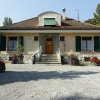Training
Volunteers receive over 100 hours of training in basic knowledge, practical knowhow, and in ‘how to be’ with themselves, with residents and their families. Training is given by in-house and external people with deep experience of their subject. Probably learning ‘how to be’ is of the greatest importance in volunteers’ support of patient, family and friends. What matters most is how we are more than what we say or do.
The training is open to anyone wishing to become a volunteer. It involves a lot of small group and pair exercises and profound discussions of topics, which some participants can find difficult for many reasons. So instead of a pre-selection process there is a self “de-selection” during the course as some participants decide that to volunteer at Tara will require greater emotional, psychological or time resources than they have available at this particular stage in life.
For those who are able to stay the course there are many personal rewards. As one volunteer wrote in her evaluation form: “It enabled me to deal with my personal issues and to deal better with life in general. The practices also enabled us to put ourselves in the residents’ and volunteers’ shoes and to know how to cope with certain situations.“ Another said: “I found the course extremely helpful. Having lost (and accompanied beforehand) several loved ones, I found it all very therapeutic. It’s good to speak to others who have been there too.” For more feedback on the training programme see ‘Feedback’ on the next page.
Training Structure
Knowledge
The programme starts with modules on palliative care covering: illness, the ageing process, pain and pain control, the death process, experiencing grief and ethics.
Know-how
Further modules cover infectious disease, hygiene, patient transfer, manipulation of wheel chairs and beds, patient positioning, transfer and relaxing massage.
Know how to be
Finally there are modules on learning how to be: the capacity to care emotionally and spiritually for patients, their families and their loved ones. The intent is to offer the patient an unconditional presence, witnessing without trying to find answers. Both the patient and the carer benefit in this process.


